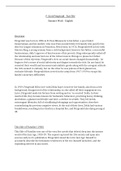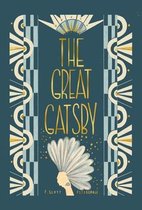Other
F. Scott Fitzergald Context Factfile
- Institution
- PEARSON (PEARSON)
- Book
- The Great Gatsby
A researched factfile on the author of The Great Gatsby, F. Scott Fitzgerald. Context integral to the module 'Varieties in Speech and Writing' in the specification for Pearson's English Language and Literature A-Level.
[Show more]




